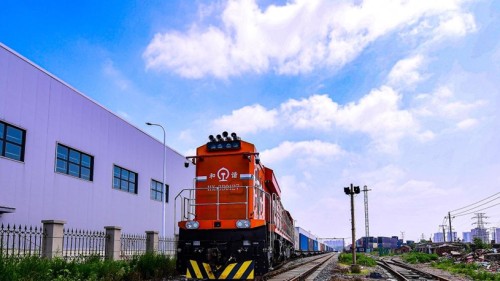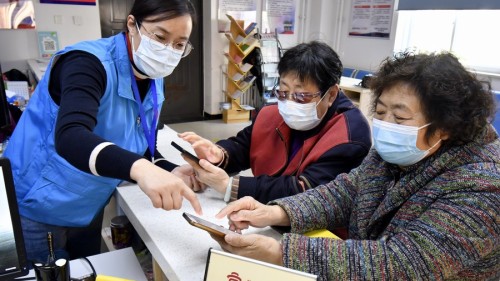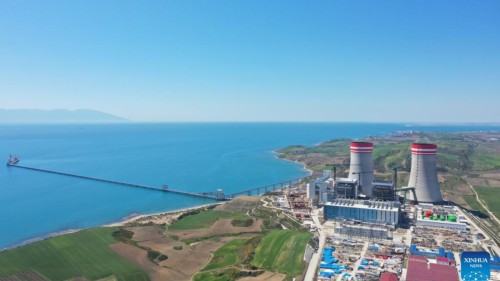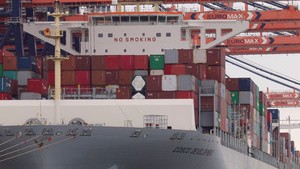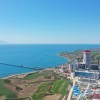Visit to Pacific island countries practice of China's equality-based diplomacy, boosts common development -- Chinese FM
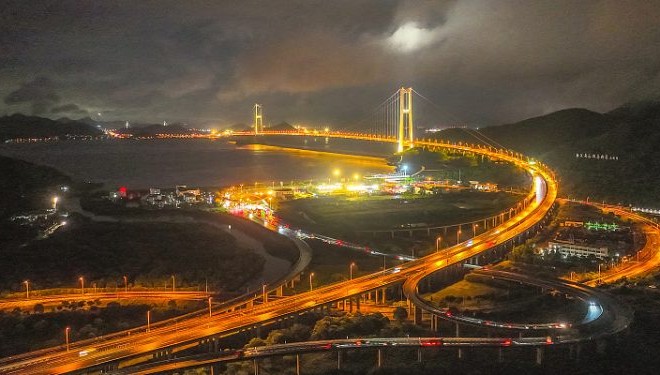
Chinese State Councilor and Foreign Minister Wang Yi on Sunday had an interview with media after concluding his tour to Pacific island countries of the Solomon Islands, Kiribati, Samoa, Fiji, Tonga, Vanuatu, Papua New Guinea and Timor-Leste.
Wang said China has always adhered to a diplomatic vision that all countries, big or small, are equal, and long advocated that no one should be left behind in achieving the 2030 Sustainable Development Goals.
Pacific island countries are now facing with more risks and challenges amid a prolonged COVID-19 pandemic, a weak global economic recovery and a turbulent international situation, Wang noted.
He said his tour, aiming to consolidate friendship, enhance cooperation, address challenges together, seek common development, and jointly build a better future with all Pacific island countries that have diplomatic ties with China, is one of peace, cooperation and friendship.
China is willing to work together with friends of Pacific island countries to well implement the important consensuses reached between Chinese President Xi Jinping and leaders of relevant Pacific island countries, and to be more united in walking side by side, firmer in supporting each other, and more pragmatic in carrying out mutual beneficial cooperation, Wang said.
China is also willing to make new contributions to boosting development, revitalization, peace and tranquility of the South Pacific region, and to build a closer community with a shared future between China and Pacific island countries, he said.
Noting that both China and Pacific island countries are developing countries, Wang said the two sides have broad consensuses, similar concerns and common missions.
Summarizing the connotation of China's policy on Pacific island countries, Wang said China adheres to treating others as equals, and to mutual respect.
The Chinese side always respects the sovereignty and territorial integrity of Pacific island countries, respects their people's exploration of development paths suited to their national conditions, and does not interfere in Pacific island countries' internal affairs, he said.
China also adheres to win-win cooperation, and to openness and inclusiveness, Wang said. China's cooperation with Pacific island countries is not targeted at and will not be interfered by any country, he added.
Noting that he carried out extensive and in-depth communication with 17 leaders and more than 30 ministers of 10 Pacific island countries that have diplomatic ties with China, Wang said he felt Pacific island countries' pursuit for development, desire for cooperation and expectation for China.
These Pacific island countries all hope to benefit from China's development to boost their own sustainable development, and want to expand exchanges and carry forward friendship with China and to consolidate public support for bilateral friendship, he said.
They all appreciate China for upholding justice in safeguarding Pacific island countries' legitimate rights and interests on the international stage, and for speaking out in addressing climate change and other global affairs, Wang added.
During the visit, China and Pacific island countries reached new broad consensuses on deepening practical bilateral cooperation, Wang said.
First, the two sides need to work together to address climate change, which is the most pressing challenge facing island countries. Second, China will help Pacific island countries promote diversified development, which is the only way for them to achieve modernization, he noted.
Third, both sides need to join hands in the development of the ocean, which is the key to the sustainable development of the island countries. Fourth, the two sides need to expand emerging industries such as digital economy, which will be the growth point of the island countries' economy in the future, the foreign minister added.
He said that the second China-Pacific Island Countries Foreign Ministers' Meeting is the first to be held in Pacific island countries since the establishment of the mechanism last year, adding there are other regional organizations in the region as well, such as the Pacific Islands Forum.
China's relations with the island countries will be driven by bilateral channels and new multilateral platforms, Wang said.
He also emphasized that China has no intention of competing with anyone for influence or engaging in geographical competition, adding that with an open mind and in accordance with the willingness of Pacific island countries, China is ready to continue to carry out more tripartite or quadripartite cooperation with Australia and New Zealand in the South Pacific region, so as to give full play to respective advantages of all sides and form greater synergy.
Located on the southward extension of the Belt and Road Initiative, Pacific island countries are important partners in the joint building of the Belt and Road, Wang said.
During his visit, China has signed an implementation plan on jointly building the Belt and Road with Kiribati, and achieved 52 bilateral cooperation results with Pacific island countries that have diplomatic ties with China in 15 fields including climate change, anti-pandemic fight, disaster preparedness and mitigation, green development, medical and health care, agriculture, trade, civil aviation and tourism, he added.
The senior Chinese official also said that during the first China-Pacific Island Countries Foreign Ministers' Meeting last year, China announced the establishment of the China-Pacific Island Countries Climate Action Cooperation Center, Poverty Reduction and Development Cooperation Center and Reserve of Emergency Supplies, which were warmly welcomed by Pacific island countries.
During the second China-Pacific Island Countries Foreign Ministers' Meeting, China also announced the establishment of the China-Pacific Island Countries Demonstration Center for Agricultural Cooperation, Disaster Preparedness and Mitigation Cooperation Center and Juncao Technology Demonstration Center, Wang noted, adding that once declared, the projects received warm response from Pacific island countries, who also expressed hope for active participation.










